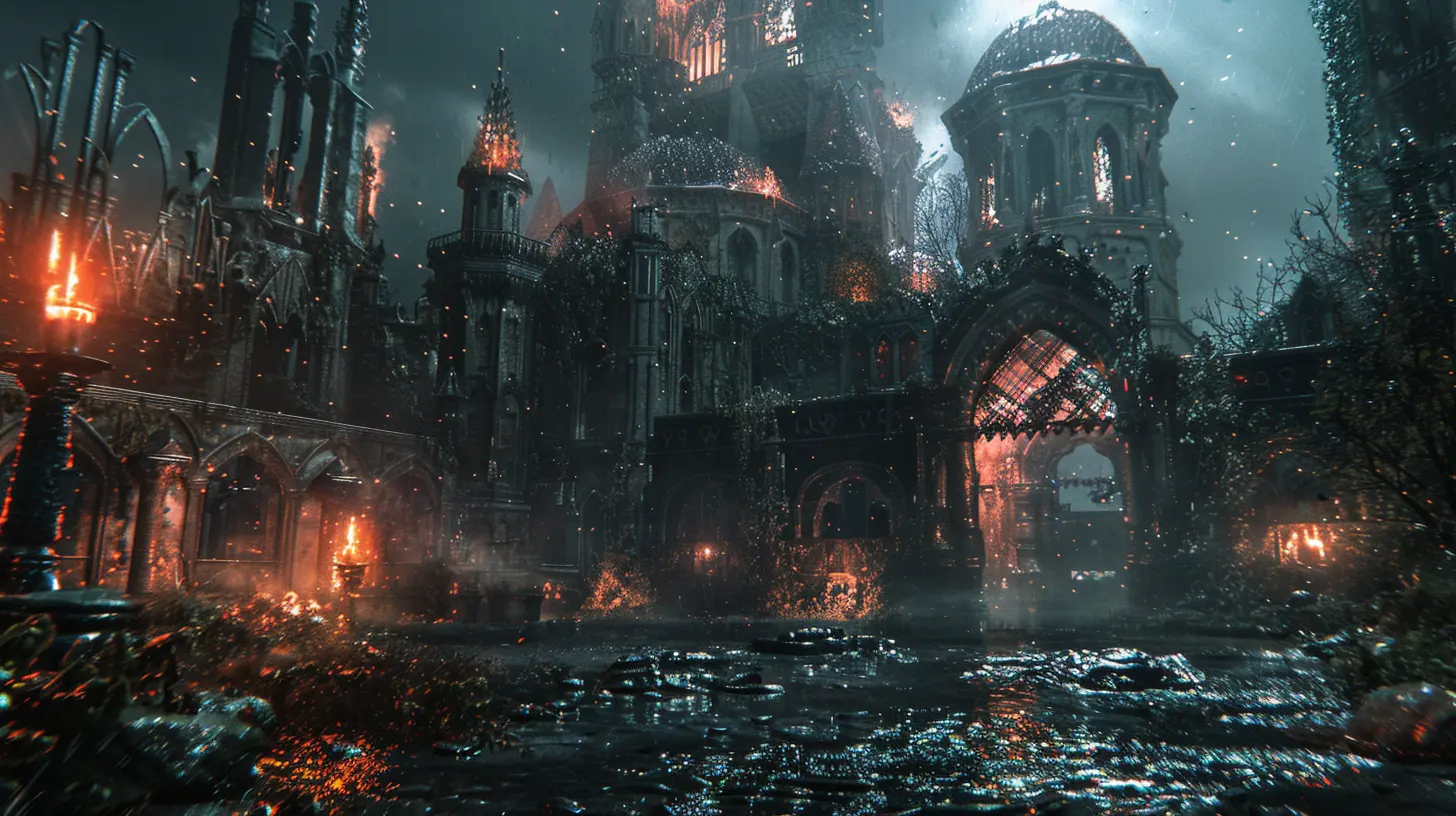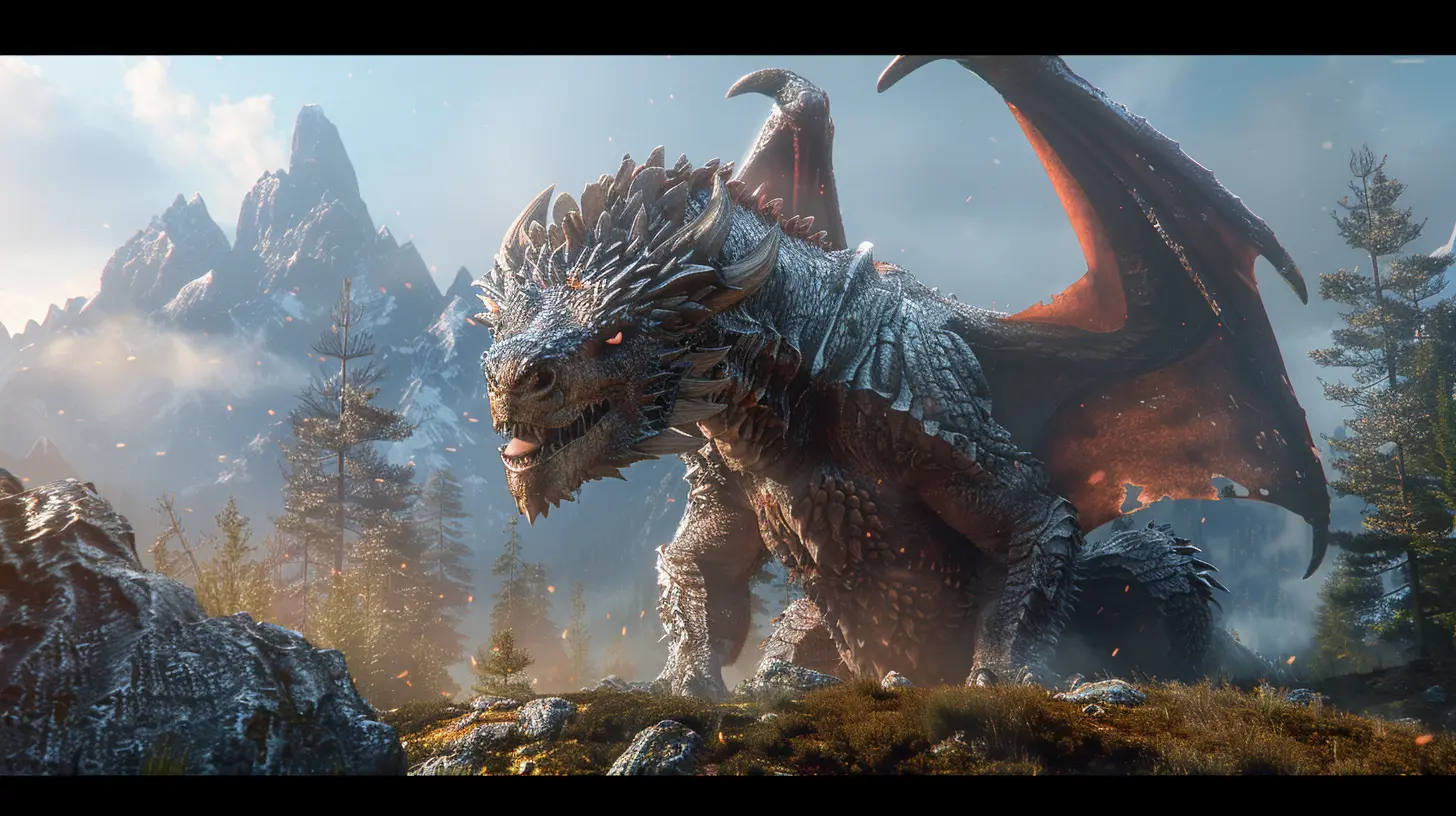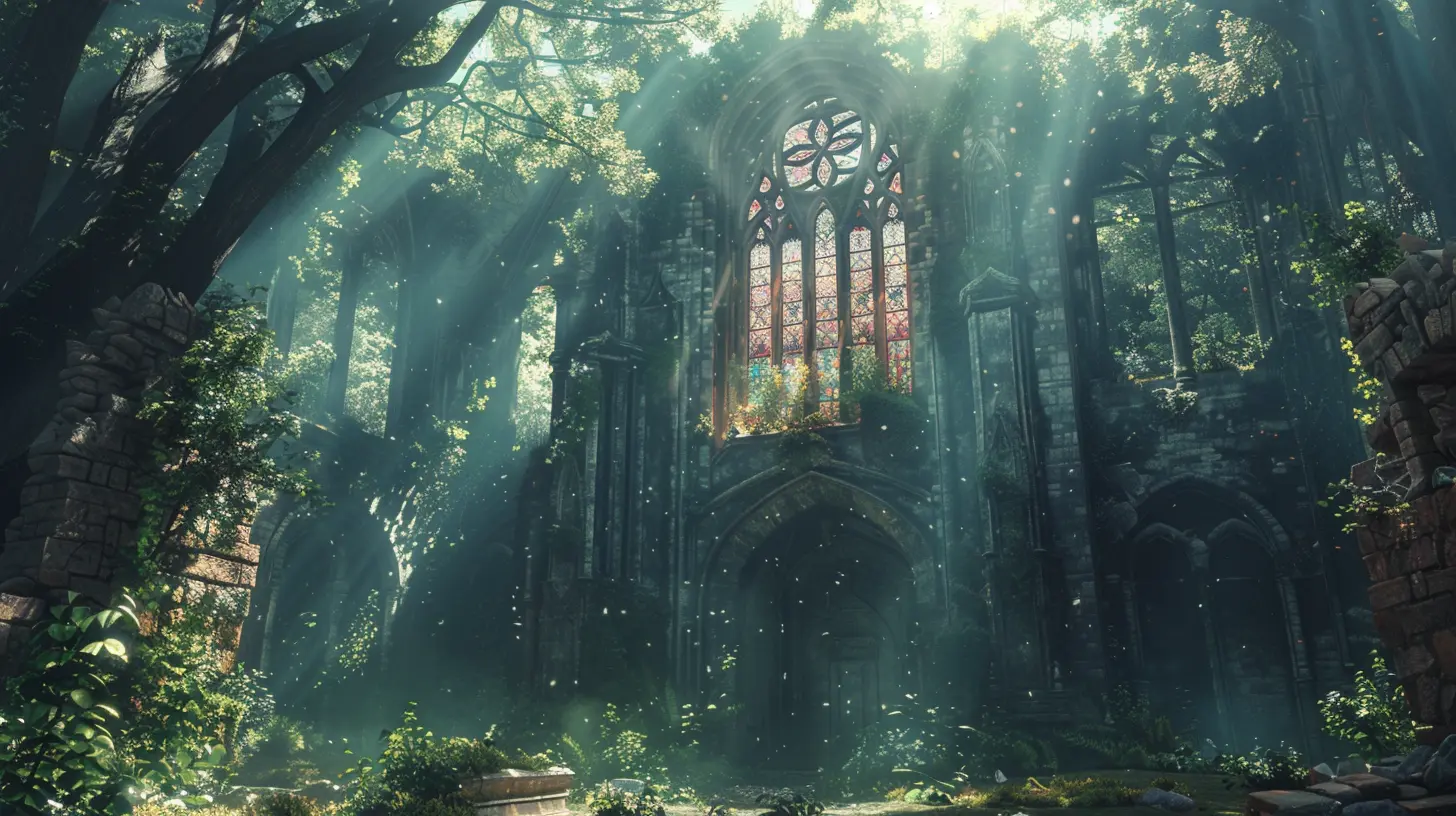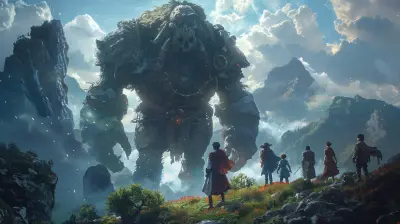The Role of Story in Crafting Immersive PC Games
13 August 2025
When was the last time you got so hooked on a PC game that you completely lost track of time? You weren’t just playing; you were living in that world—feeling like the hero, breathing in the environment, and soaking up the vivid narrative. That immersive experience? It’s often made possible by the story. Yes, gameplay mechanics, graphics, and sound design are important, but a well-crafted story is the beating heart of an unforgettable gaming adventure.
Let’s dive into why storytelling is so crucial in creating immersive PC games and how it elevates the gaming experience from "just playing" to "fully living" the journey.
Why Is Storytelling Important in PC Games?
Ever played a game without a story? Sure, classics like Tetris or Pac-Man didn’t need one, but for modern PC games, it’s a completely different ball game. Stories give context to your actions and meaning to the game world. They’re the glue that binds gameplay elements together and the magnet that keeps players coming back for more.Take games like The Witcher 3: Wild Hunt, Red Dead Redemption 2, or Cyberpunk 2077 (even with its rocky launch). Their narratives aren’t just side dishes; they’re the main course. These games don’t just ask you to press buttons—they make you care about why you're pressing them. Whether it’s hunting down Ciri, seeking revenge, or rebuilding a dystopian world, the story fuels your motivation.
How Story Immersion Works in PC Games
Let’s break it down. What makes a PC game’s story so immersive anyway? It’s usually a mix of the following:1. Relatable Characters
Characters are the gateway to a game’s world. If you don’t care about them, chances are you won’t care about the story either. Games like The Last of Us Part II use character development to make players feel connected. You cry when they cry, laugh when they laugh—even rage when they do. You’re not just controlling a character; you’re becoming them.Think of Geralt from The Witcher 3. He’s brooding, morally complex, and relatable in his flaws. Players aren’t just tossing swords around—they’re stepping into Geralt’s shoes, dealing with his moral dilemmas and emotional baggage. That connection? It’s storytelling magic.
2. World-Building
A good story pulls you into its universe. You want to live there, even if it’s a post-apocalyptic wasteland or a medieval kingdom rife with danger. World-building isn’t about dumping lore on players; it’s about creating a living, breathing world that feels real. From hidden notes in a dungeon to overheard NPC conversations, these small details contribute to a game’s narrative depth.For instance, in Skyrim, even though you can ignore the main quest and run off chasing dragons, the world itself tells a story. Every ruined tower, every cryptic book—it all hints at a broader history. You don’t just play the game; you discover its essence.
3. Player Agency
What’s better than watching a story unfold? Being part of it. Player agency means the choices you make actually matter. Games like Mass Effect and Detroit: Become Human thrive on this. Your actions shape the narrative, often leading to wildly different outcomes.Think of it this way: a good story in a game doesn’t railroad you into one path. Instead, it’s like a choose-your-own-adventure book where your decisions carry emotional weight. That freedom makes the story personal, keeping players invested.
4. Emotional Engagement
Let’s be real—nobody remembers a game solely because the combat was fun or the graphics were stunning. They remember how it made them feel. A good story evokes emotion, whether it's joy, sadness, fear, or even confusion. Games like Life is Strange or Undertale are masters at this. They tug at your heartstrings by making you care about the narrative.
The Art of Crafting Stories for PC Games
Creating a great story for a PC game isn’t easy. It’s not just about writing a killer script; it’s about weaving the story into the gameplay. Here’s how developers pull it off:1. Integrating Story with Gameplay
A disjointed story stands out like a sore thumb. If the narrative and gameplay don’t mesh, immersion takes a hit. Great games ensure that every mechanic, from combat to exploration, serves the story. In Dark Souls, for example, even the frustrating difficulty aligns with its bleak narrative. The mechanics are the story, telling you that the world doesn’t care about your struggles.2. Pacing and Progression
Good stories don’t dump everything on you in the first hour. They unfold over time, like a flower blooming. This keeps players hooked. Games like Horizon Zero Dawn master pacing by feeding you bits of lore and plot as you progress, keeping you curious without overwhelming you.Imagine if a game started with its climactic moment—wouldn’t that ruin the experience? Developers strategically build tension and release, ensuring a rewarding journey from start to finish.
3. Using Visual Storytelling
Who says a story needs words? Sometimes, a single image or a haunting piece of music tells more than dialogue ever could. Games like Journey and Shadow of the Colossus rely heavily on visual and atmospheric storytelling to evoke emotion. A crumbling ruin, the way light filters through trees, or even the silence in a desolate field—these details pull players deeper into the narrative.
Narrative Trends in PC Gaming
Storytelling in PC games keeps evolving, and it’s fascinating to watch. Open-world games, branching narratives, and episodic content have all shaped what’s possible. Here are a few trends that are redefining storytelling in modern PC games:1. Emergent Stories
Who doesn’t love a good unscripted moment? Emergent storytelling happens when the game’s systems generate unique, player-driven stories. Think of The Sims or Minecraft. These games give you the tools and sandbox, and you create the drama. Your story is unique to you, making the experience even more personal.2. Social Storytelling
Multiplayer games like Fortnite or Among Us don’t have traditional stories, but they rely on player interactions to create narratives. That time your squad valiantly held the fort against overwhelming odds? Or when you betrayed your best friend as the impostor? Those moments are stories, shaped by the players themselves.3. Narrative-Driven Indie Games
Indie games are becoming a storytelling powerhouse. Titles like Hades, Celeste, and Disco Elysium prove that you don’t need a blockbuster budget to deliver a gripping narrative. With bold, experimental stories, indie games are redefining emotional depth in gaming.Why Players Crave Story-Driven Games
At the end of the day, why are we so drawn to story-driven games? It’s simple: we’re storytellers at heart. Since the dawn of time, humans have been sharing tales of heroism, tragedy, and adventure. PC games are just the modern extension of that tradition. They let us step into those stories and make them our own.When a game nails its storytelling, it doesn’t feel like entertainment—it feels like an experience, something that stays with you long after you’ve logged out. It’s why we reminisce about Final Fantasy battles or debate the ethical dilemmas in The Walking Dead. Stories make games memorable.
Final Thoughts
In the competitive world of PC gaming, where flashy graphics and innovative mechanics grab headlines, it’s the story that truly sticks with players. A great story transforms a game into a living, breathing universe, one you don’t just visit but become a part of. Whether it’s through complex characters, carefully crafted worlds, or emotionally charged narratives, the role of story in PC games is undeniable.So, the next time you boot up your favorite game and find yourself emotionally invested in its world, remember—it’s the story working its magic. And as gamers, isn’t that what we live for? To be swept away into a tale where we’re not just spectators but participants?
all images in this post were generated using AI tools
Category:
Pc GamesAuthor:

Lana Johnson
Discussion
rate this article
2 comments
Jasmine Burton
Story is the heartbeat of immersive PC games. Without a compelling narrative, even the most stunning graphics fall flat. Players crave emotional connections and memorable experiences—it's time developers recognize that gripping stories elevate gameplay from mere entertainment to unforgettable journeys.
February 12, 2026 at 3:55 AM
Samuel Lopez
Story is the heart of immersive gaming, transforming pixels into powerful experiences. Let’s celebrate the narratives that elevate our adventures and connect us all!
August 29, 2025 at 4:32 AM

Lana Johnson
Absolutely! Story truly breathes life into gaming, turning mere gameplay into unforgettable journeys that resonate with players.


